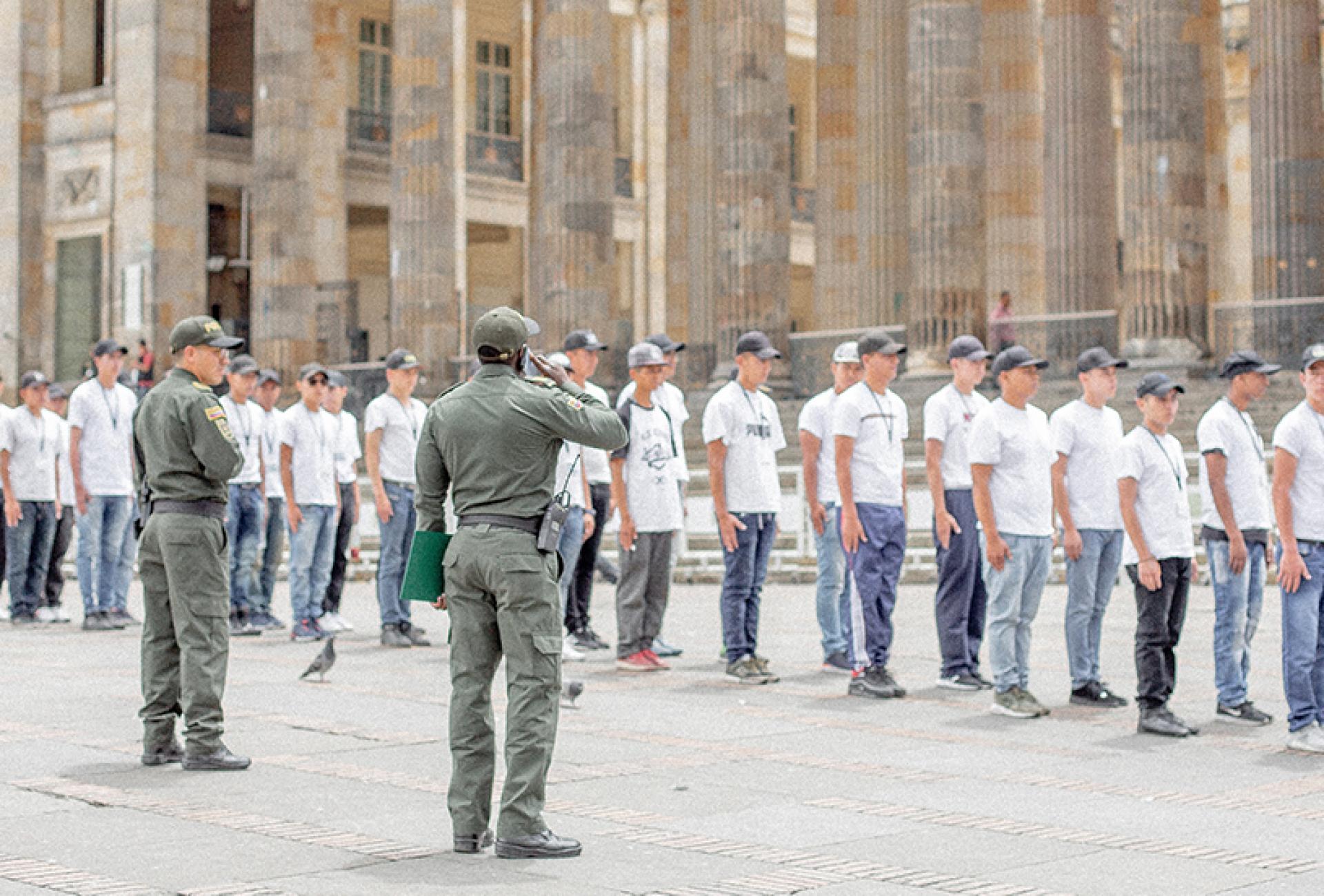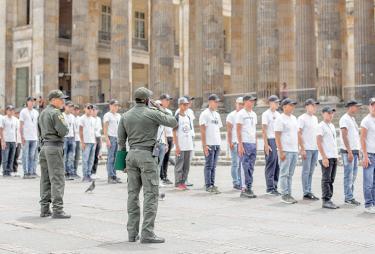Conscientious objection: Said no for conscience’s sake


Juan Pablo Córtes was 18 years old when he refused to do military service on the grounds of conscience. A decision that has affected his life in several ways.
He does not like violence and believes that if we want a less violent world, it is important to refuse military service.
“The Church helped me become more aware of my responsibility as a Christian, as a human being, and to stand up for important values,” says Juan Pablo Córtes, who turned 19.
The right to refusal of conscience was recognised by colombia’s Constitutional Court in 2009. This right to invoke ethical, philosophical, political or religious reasons for refusal of conscience has been governed by law since 2017. It is a result of, among other things, the organization Justapaz’slong-term advocacy work supported by SMC’s member organization Christian Peace Movement.
An easy decision to conscientious object

Juan Pablo Córtes
Justapaz has also helped Juan Pablo Córtes in his process to invoke conscientious objection. Juan Pablo says the decision was simple.
“My parents weren’t too keen on me doing military service either, but in the end I was in charge. And really, it wasn’t difficult, because I was familiar with nonviolent methods and knew I wanted to follow God’s word.
“I have also looked up to people like Martin Luther King and Gandhi and others who wanted to improve society. I wanted to be like them and not just do what everyone else did. I wanted to stand up for myself instead of contributing to a militaristic and totalitarian society,” he says emphatically.
Conscientious objection goes against a culture of violence
Justapaz’s lawyer Andrés Aponte helped Juan Pablo Córtes throughout his conscientious objection process, a process that culminated in Juan Pablo being interviewed by a committee of four military personnel, a doctor and a psychologist evaluating his reasons.
“It was a bit scary, not least after I spoke to two other conscientious objectors who had been turned down. So getting help from Andrés, who came with me, was very important. He was also able to clarify a few points when the Committee asked questions.
Andrés Aponte says that refusing military service is contrary to Colombia’s culture because the country has been at war for so long that violence has normalised. Every year, the military recruits about 60,000 young men. It is a quota they have to fill and when there are “no” recruits, the military ignores the law and uses illegal methods to attract young people who may not see other options.
“This is one of the things that legal assistance is important,” says Andrés Aponte.
Become more open and less shy
Juan Pablo’s parents helped him, but many other parents say: don’t be a coward, be a man!
“But we believe that it is the conscientious objectors who are brave. Juan Pablo, for example, was only 18 years old when he had to stand before the committee and explain himself. And it’s scary. As more young people do this, a door opens, a door that guarantees the possibility of freedom of conscience,” says Andrés Aponte.
Juan Pablo says that the process and decision have affected his life in several ways. On the one hand, he sees his refusal of conscience as an important step towards a more peaceful Colombia, and on the other hand he has met others in the same situation and in the coup has become more open as a person, less shy.
“Now I’ve met other people who think like me. I can express what I feel and think and I have also become aware of the important social work that the Church and other NGOs are doing.
This is one of the examples of change at the societal level that long-term international aid can contribute to. Read more in SMC’s report Harvesting Outcomes on Societal Level: A Learning Review of results 2017-2019 from five organizations supported by SMC.
Facts: Justapaz and conscientious objection in Colombia
Justapaz has been working for over 25 years, including peace-building and reconciliation, nonviolent transformation of conflicts and the right to refusal of conscience in Colombia. In terms of refusal of conscience, they work with political influence, support for congregations and youth networks, education on non-violence and the right to refusal of conscience and legal support for individual conscientious objectors. They also provide psychosocial support to the families of conscientious objectors.
Every year, about 700 people are conscientious, of whom about 60 percent are rejected at first instance. There are no statistics on how many are rejected after a trial at a higher court. Justapaz supports about 80 conscientious objectors each year. So far, everyone has had their reasons approved, not least because they have received training in human rights, ethics, nonviolence and politics. The legal proceedings have set important precedents around the right to conscientious objection, which was recognised by colombia’s Constitutional Court in 2009. Justapaz and other civil society organisations are now working to abolish compulsory military service.
